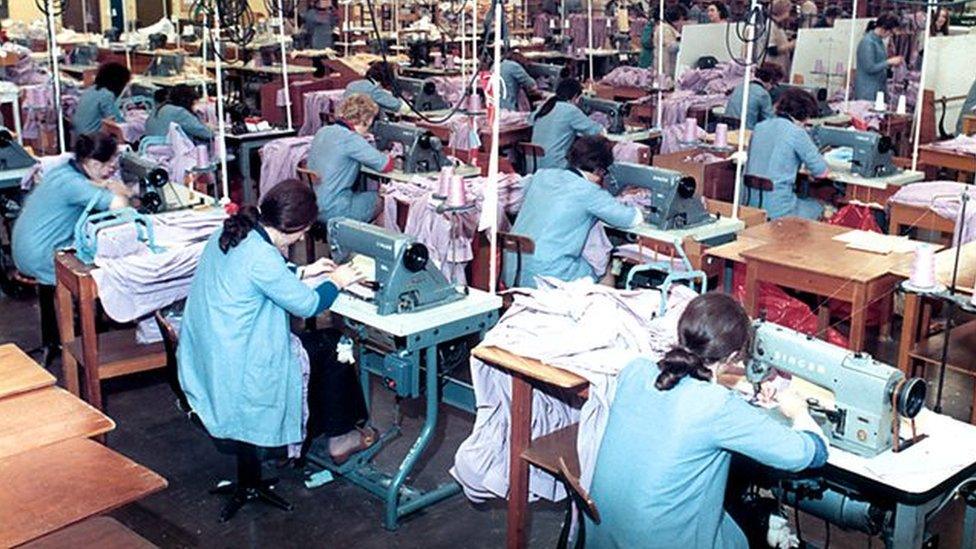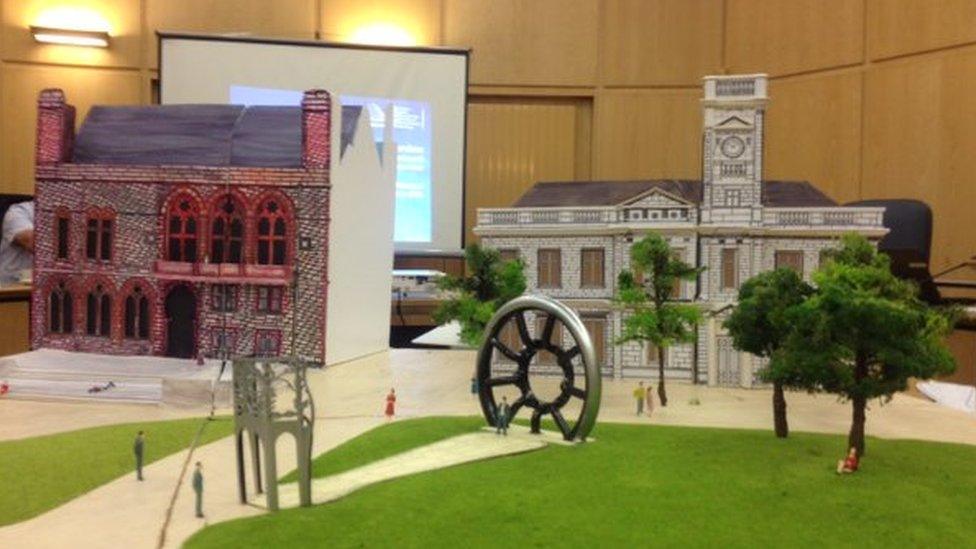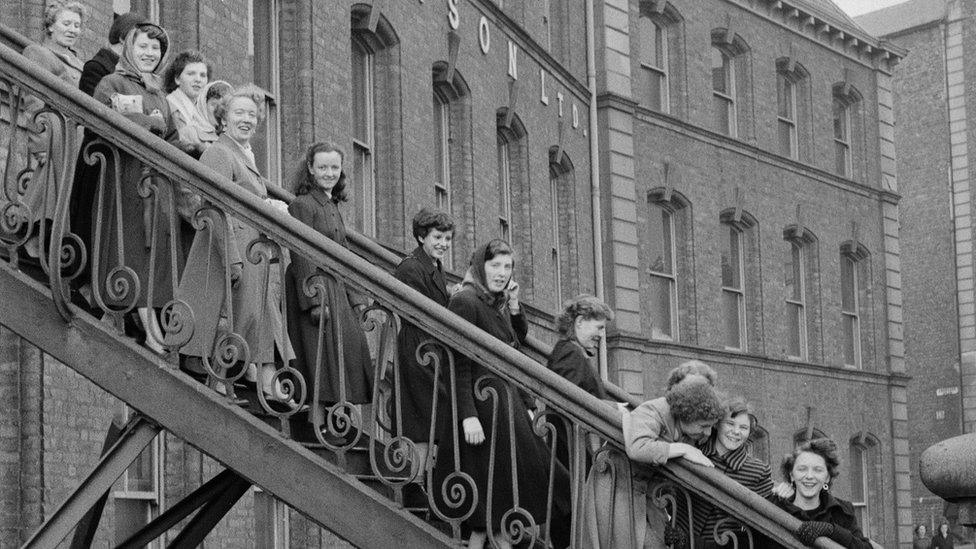Funding approved for Harbour Square and factory girls artwork
- Published

A female workforce powered much of the industrial development of Derry
The Department for Communities (DfC) has approved £1.3m of funding for the redevelopment of Harbour Square and factory girls artwork in Londonderry.
A piece of artwork to remember the local shirt factory workers was approved by Derry and Strabane Council's planning committee in March.
The committee approved public realm works which will transform the area taking in Harbour Square.
New artwork honouring factory workers of the city will be housed there.
A long-planned factory girls sculpture was shelved back in 2018 and plans for a new artwork were announced in 2020.
Sinn Féin councillor Sandra Duffy told BBC's The North West Today that the funding will be "transformative" for the Harbour Square area.
"Through City Deal funding, we have a huge redevelopment plan for our riverfront so the Harbour Square will be the opening between the historic walled city and that lively riverfront," Ms Duffy said.
The artwork, she said, would be a fitting tribute to the hard-working women from Counties Donegal, Tyrone and Derry who worked in those factories and helped build the city.

A look back at the shirt industry in Derry in the 1970s
What was the significance of Derry's factory girls?
Derry was historically a centre for shirt-making, with the industry developing from the late 19th Century.
By the 1920s, there were more than 40 shirt factories employing thousands of workers, with thousands more servicing the industry from their homes.
The vast majority of those who did the job were women.
They were immortalised by the songwriter Phil Coulter in The Town I loved so Well: "In the early morning the shirt factory horn called women from Creggan, the Moor and the Bog."
There were still hundreds of people employed in clothing manufacturing up until the early 2000s.
However, the industry has since been all but wiped out in the face of global competition, with one of the last traditional handmade shirt makers in Britain and Ireland closing in May last year.

Ms Duffy said the artwork would be produced by the artist in conjunction with former factory girls.
"A group of factory girls are working on this to ensure everyone is incorporated and that we have something that everyone is happy with," she said.
She said the artwork and the redevelopment work is anticipated to be completed by Spring 2024.
Related topics
- Published10 October 2018

- Published13 October 2020

- Published21 September 2019
